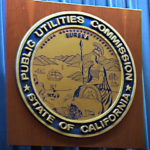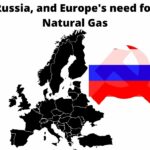During a fund-raising trip to California, President Trump issued a series of Tweets announcing the Trump Administration is “revoking California’s Federal Waiver on emissions”. He promised this will decrease car prices, make cars much safer, and increase JOBS for auto-workers. To do this his Administration is flouting over 50 years of precedent under which California’s Air Resources Board has enacted clean air regulations that not only affect California but the couple dozen other US States that have adopted the same regulations.
Here is President Trump’s claim:

He is referring to a tortured bit of twisted logic – namely that the Obama era CAFE standards increase should result in more expensive cars and therefore car buyers will put off buying new cars and therefore will be driving older cars with weaker safety equipment. The Trump Administration was called the SAFE Standards – hence Trump’s use of “SAFER” in today’s tweet. In August 2018, the EPA opened a public discussion period over those standards. For more see Trump Administration moves to cancel clean car standards, undoing Obama’s CAFE win
Last fall the US EPA and California Air Resources Board had discussions over plans regarding California’s long-standing right to enact its own air quality rules. But California’s negotiators described it more as a one-sided demand from the EPA, and not good-faith negotiations. See Trump Administration cuts off “negotiations” with California over clean air rules
In July it was clear the Trump Administration would be taking this move. The automakers, instead of applauding the Trump Administration, instead made a deal with California to live by a set of strict air quality standards. The NY Times![]() said Ford Motors, VW of America, Honda and BMW initially joined the plan and that other automakers might join as well. Under this plan automakers “would face slightly looser standard than the original Obama rule: Instead of reaching an average 54.5 miles per gallon by 2025, they would be required to hit about 51 miles per gallon by 2026.”
said Ford Motors, VW of America, Honda and BMW initially joined the plan and that other automakers might join as well. Under this plan automakers “would face slightly looser standard than the original Obama rule: Instead of reaching an average 54.5 miles per gallon by 2025, they would be required to hit about 51 miles per gallon by 2026.”
The NY Times describes the political-legal calculus as, California is vowing to fight this all the way to the Supreme Court, and the automakers think California will prevail. Therefore the automakers want to be on the winning side.
But the automakers risk retribution from the Trump Administration. For example the Administration has been using Tarrif’s as a blunt economic weapon in order to get its way.
The NY Times also noted the gasoline refining industry has lobbied hard for a rollback of the CAFE standards. Their self-serving intent is to cause an increase in gasoline sales by not requiring strict fuel economy improvements.
Yesterday the Attorney General of California, Xavier Becerra, issued a statement saying
Tuesday, September 17, 2019
SACRAMENTO – California Attorney General Xavier Becerra today issued the following statement in response to reports that the Trump Administration would revoke California’s waiver to set greenhouse gas emission and ZEV standards:
“While the White House clings to the past, automakers and American families embrace cleaner cars,” said Attorney General Becerra. “The evidence is irrefutable: today’s clean car standards are achievable, science-based, and a boon for hardworking American families and public health. It’s time to remove your blinders, President Trump, and acknowledge that the only person standing in the way of progress is you. You have no basis and no authority to pull this waiver. We’re ready to fight for a future that you seem unable to comprehend; we’ll see you in court if you stand in our way.”
Attorney General Becerra to President Trump: You Have No Authority to Pull California’s Waiver; We’ll See You in Court
The NRDC has vowed to join the fight against this move![]() .
.
“State leaders need the ability to protect their citizens from dangerous air pollution and the ravages of our climate crisis. Only the mean-spirited Trump administration would think it makes sense to deny clean air to 118 million Americans in 14 states.
“Even the automakers have called on the president to work with the states on a negotiated outcome that continues to make progress on curtailing tailpipe pollution. The administration should drop this wrongheaded idea and work with state leaders, not against them.”
Luke Tonachel, director for clean vehicles and fuels at the Natural Resources Defense Council (NRDC)
“States’ ability to set tailpipe emission standards to protect their citizens was laid out clearly in the Clean Air Act, and nothing in the fuel economy law takes away that authority. Federal judges have twice ruled that states have the authority to set standards to curb carbon pollution.
“We will fight this in court – and we will win.”
David Doniger, a senior attorney at NRDC
Public Citizen issued a statement today![]() :
:
Note: Today, President Donald Trump said his administration is revoking the Clean Air Act waiver that allows California to regulate tailpipe emissions of greenhouse gases, and the administration is expected to announce the issuance by the U.S. Department of Transportation of a rule saying that such state regulations are pre-empted by federal fuel economy standards. Public Citizen has long fought the Trump administration’s attacks on the environment and has previously taken legal action
against the White House over its efforts to roll back the clean car standards.
The administration’s planned withdrawal of this important waiver and its position that state greenhouse gas regulations are pre-empted by federal fuel economy standards are contrary to both the Clean Air Act and the Energy Policy and Conservation Act. These actions will further impede efforts to combat global climate change even as the signs of impending climate disaster grow ever clearer.
The administration’s actions, if they are finalized, will be speedily challenged in court by a broad coalition of environmental and consumer groups and, we would expect, by California and other affected states.
Scott Nelson, Attorney, Public Citizen Litigation Group
In February 2019 a coalition of the State of California and a long list of environmental groups filed a brief![]() with the EPA’s rule-making process. This document says that when the EPA adopted model-year 2022-2025 emissions rules (77 Fed. Reg. 62,624 (Oct. 15, 2012)) it obligated itself to review those rules by April 1, 2018. The review was required to be “collaborative,
with the EPA’s rule-making process. This document says that when the EPA adopted model-year 2022-2025 emissions rules (77 Fed. Reg. 62,624 (Oct. 15, 2012)) it obligated itself to review those rules by April 1, 2018. The review was required to be “collaborative,
robust and transparent process, including public notice and comment,” and to be as exhaustive with peer-reviewed analyses and other documents forming a “record for judicial review” that would be as extensive as the original rulemaking in 2012.
Instead, according to this briefing, the Revised Determination “mocked” those requirements, and that the “EPA ignored its own extensively documented prior findings”. Instead the EPA provided “new” documentation that had not received public comment/review, and is “devoid of supporting analysis”.
In short the briefing says the EPA’s process it followed to reach this point flouts the legal requirements under which it was supposed to make decisions.
We should also view this briefing as showing us approximately the shape of the opposition to the Trump Administration plan to undermine California’s air quality rules. Namely the petitioners are listed as:
Petitioners: State of California, by and through its Governor Gavin Newsom, Attorney General Xavier Becerra and California Air Resources Board; State of Connecticut; State of Delaware; District of Columbia; State of Illinois; State of Iowa; State of Maine; State of Maryland; Commonwealth of Massachusetts; State of Minnesota, by and through its Minnesota Pollution Control Agency and Minnesota Department of Transportation; State of New Jersey; State of New York; State of Oregon; Commonwealth of Pennsylvania, by and through its Department of Environmental Protection and Attorney General Josh Shapiro; State of Rhode Island; State of Vermont; Commonwealth of Virginia; State of Washington; National Coalition for Advanced Transportation; Center for Biological Diversity; Conservation Law Foundation; Environmental Defense Fund; Natural Resources Defense Council; Public Citizen, Inc.; Sierra Club; the Union of Concerned Scientists; Consolidated Edison Company of New York, Inc.; National Grid USA; New York Power Authority; and The City of Seattle, by and through its City Light
Department.
This includes not just California, but Connecticut, Delaware, Illinois, Iowa, Maine, Maryland, Massachusetts, Minnesota, New Jersey, New York, Oregon, Pennsylvania, Rhode Island, Vermont, Virginia, Washington State, the District of Columbia, and several environmental watchdog organizations.
When the NRDC and the California Attorney General announced they’d see the Trump Administration in court, that’s not just empty bravado.










- Is there enough Grid Capacity for Hydrogen Fuel Cell or Battery Electric cars? - April 23, 2023
- Is Tesla finagling to grab federal NEVI dollars for Supercharger network? - November 15, 2022
- Tesla announces the North American Charging Standard charging connector - November 11, 2022
- Lightning Motorcycles adopts Silicon battery, 5 minute charge time gives 135 miles range - November 9, 2022
- Tesla Autopilot under US Dept of Transportation scrutiny - June 13, 2022
- Spectacular CNG bus fire misrepresented as EV bus fire - April 21, 2022
- Moldova, Ukraine, Georgia, Russia, and the European Energy Crisis - December 21, 2021
- Li-Bridge leading the USA across lithium battery chasm - October 29, 2021
- USA increasing domestic lithium battery research and manufacturing - October 28, 2021
- Electrify America building USA/Canada-wide EV charging network - October 27, 2021





















Thank you for a complete and compelling set of well-researched statements.
Here are my bases for a court’s inability to roll back California’s standards pursuant to a Trump Administration attack:
1. The Trump Administration has failed to support an environmental basis for its rollback of the Obama Administration Clean Air Act standards.
2. California’s standards are stricter than the EPA standards, and such an ability is a standard principle of federalism — unless it demonstrably results in hardship on the marketplace (see 3.).
3. Because 40% of consumers live under the California standard, and because auto manufacturers have not argued that it is a hardship to adhere to the California standard, and because there is no demonstrable negative impact on the marketplace due to the California standard, there is therefore no basis under the tenants of interstate commerce impact to require the removal of the California standard.
Pingback: Trump reopens fracking leases on federal lands in California – The Long Tail Pipe